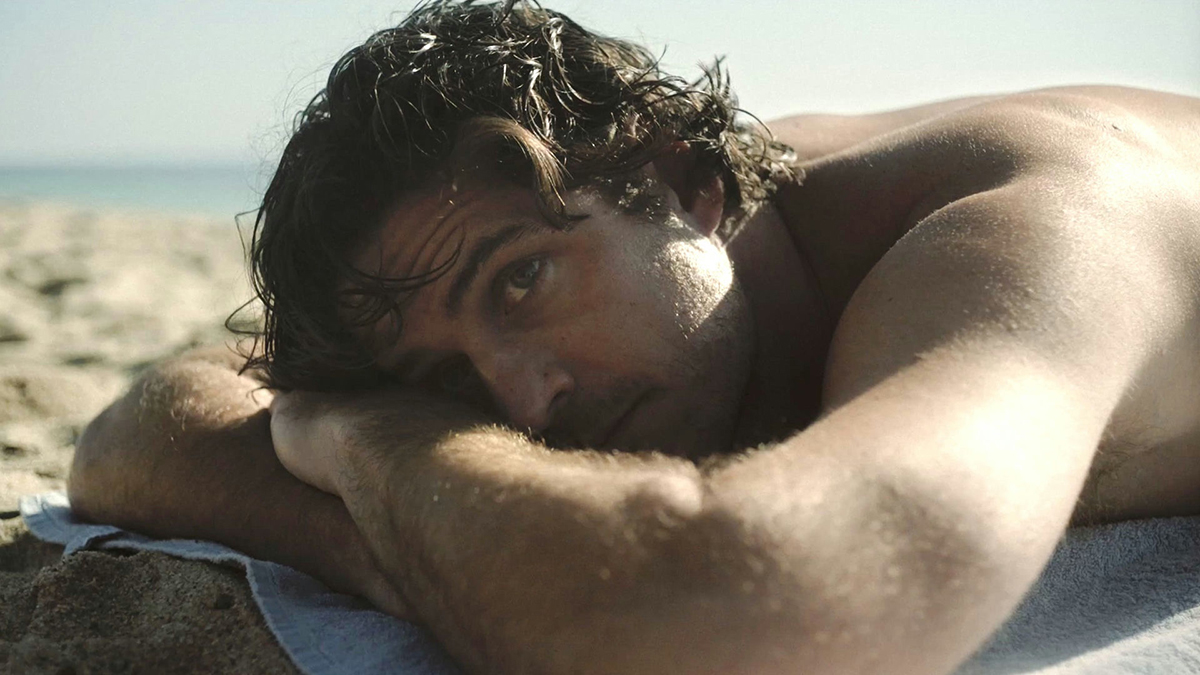High Tide is sweet, sad, and optimistic as it crafts the story of a heartbroken, undocumented gay man at a hopeless standstill. Beauty and quiet pain build to a crescendo in this worthwhile if disjointed SXSW film about moving forward.
Written and directed by Marco Calvani, the story follows undocumented Brazilian Lourenco, played by Marco Pigossi (Gen V, Invisible City). Lourenco works off the books in Provincetown, MA and his visa is about to expire. As summer nears its end, he starts a passionate relationship with Maurice, played by James Bland (Unconventional, Giants), and learns to live a little.
High Tide Builds a World in Provincetown
Lourenco starts the film emotionally struggling, heartbroken by a recent break-up. He’s also mostly alone, aside from a couple of friends. He’s a man sleepwalking through life while trying to do the minimum to survive. Combined with his immigration woes, it seems like misfortune is coming at him from all sides.
Once Lourenco meets Maurice, though, his world opens as he goes out to the town’s famous LGBTQIAP+ events and parties to live a little. The film stays intimate and insulated but it builds a small world in Provincetown.
The Score Is Too Bleak
Film scores are a vital aspect of film as they can emphasize the emotional landscape. But the score throughout most of High Tide is so dramatic and sad that it makes viewers brace for tragedy. So, some moments feel like ominous foreshadowing that never comes to fruition. The score lacks a hopeful tone, bypasses sadness, and goes straight to depression. The score would make the movie an ordeal if not for the performances.
Uneven Pacing, Problematic Choices Mostly Saved By the Performances
At first, the film drags as it portrays Lourenco’s mundane. This slow open, though, includes a moment that should come with a trigger warning, even though no one in High Tide discusses it. During a hook-up, Lourenco asks his partner to use protection but his partner doesn’t – that’s assault. The movie should have explored or avoided it entirely.
Instead, the film focuses on finding your people and moving forward, making the case that the worst thing one can do is stand still. Marco Pigossi and James Bland deliver impressive performances. For Pigossi, his mannerisms display his discomfort. He’s constantly hugging himself, whether cold or not. It’s like he is trying to escape his own skin, highlighting his feeling of isolation but also his fear about his mom in Brazil knowing he is gay. Bland conveys each emotion wonderfully through his face, whether hurt, sadness, or juvenile jealousy. Once these two meet, the film picks up considerably.
Marisa Tomei (Spider-Man: No Way Home, My Cousin Vinny), as Miriam, presents a free-spirited openness that starkly contrasts with Lourenco’s closed-off behavior. Tomei’s acting never falters in any role. Unfortunately, while her performance is excellent, she feels less like a character in her own right. Instead, Miriam exists solely to drop verbal gems to inspire Lourenco’s growth. It’s not a problem necessarily, but it is pretty blatant here.
A Believable Look at Race in Relationships
As Lourenco and Maurice begin forging a relationship, race comes up. Since Lourenco is an immigrant, he sees Maurice as more fortunate because he is American. He does not see the horrors of the Black experience but he begins to learn, listening empathetically because he cares about Maurice.
High Tide deserves a lot of credit for making Maurice’s discussion about how he navigates the world as a Black man feel natural – like when Maurice tells Lourenco to look around the restaurant and Lourenco realizes no other Black people are present. High Tide also demonstrates that learning is continual. Lourenco keeps growing, learning how simple words like “stud” carry a loaded implication for Black men. Writer and director Marco Calvani does an inspiring job juggling these discussions within Lourenco’s story, which is the film’s primary focus.

